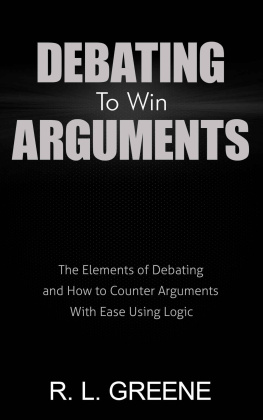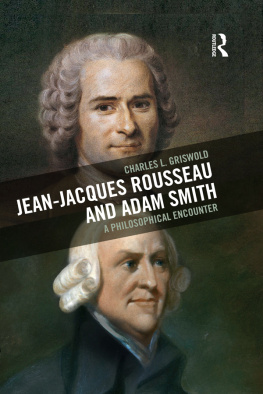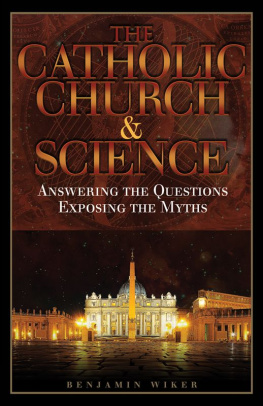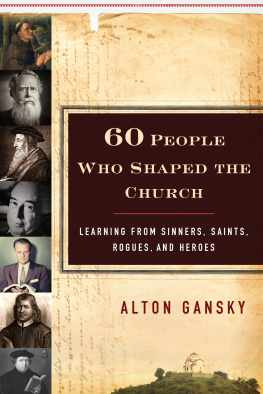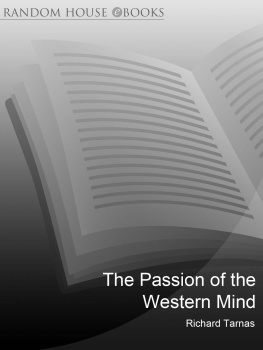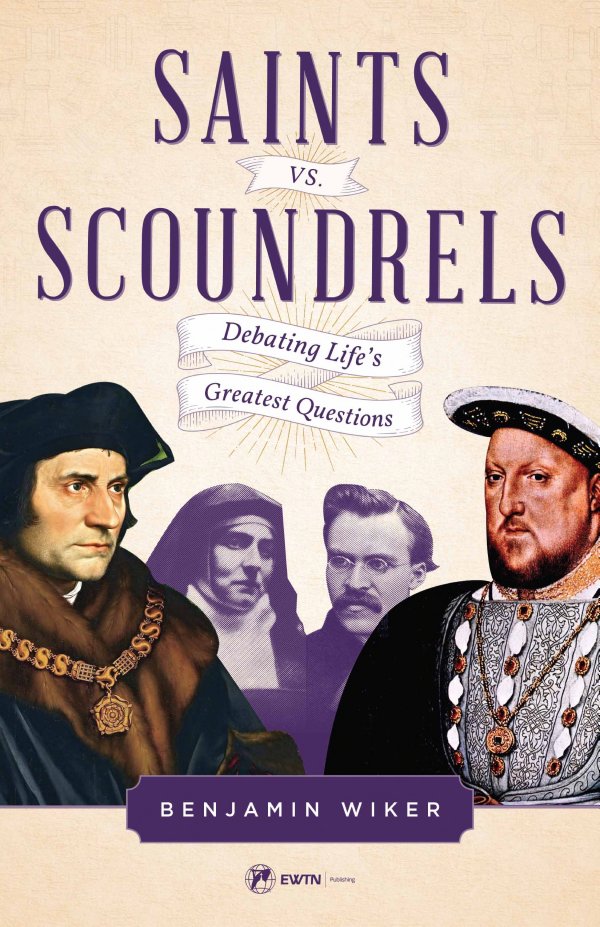


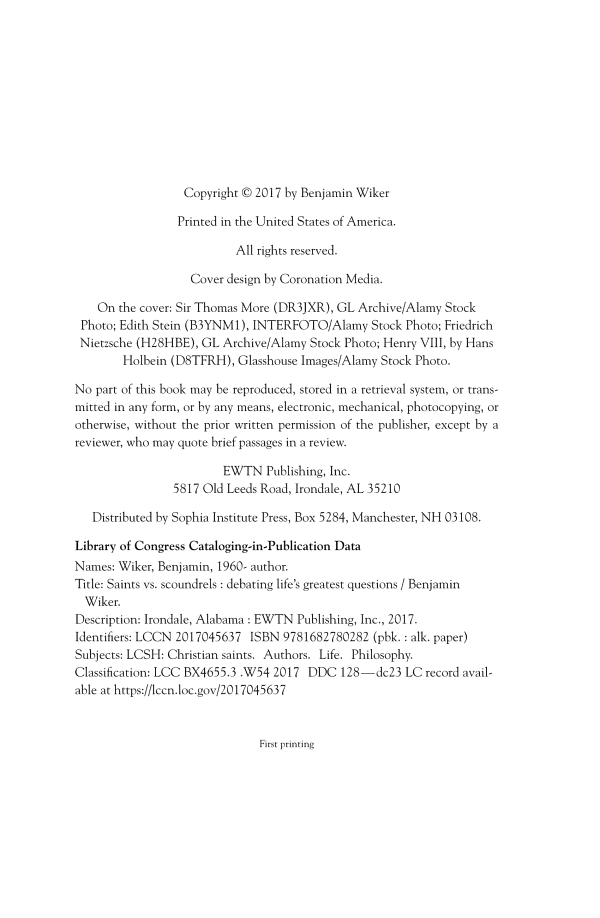
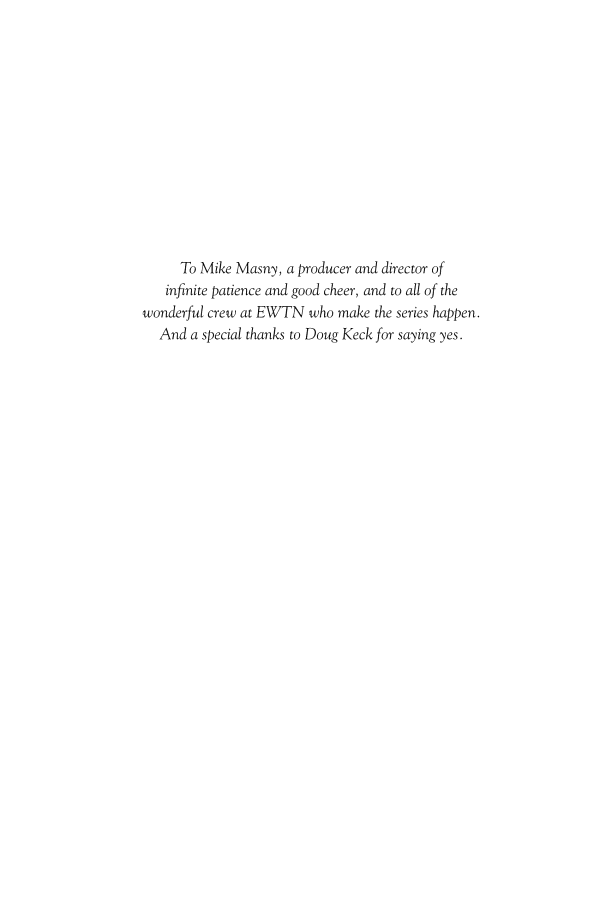
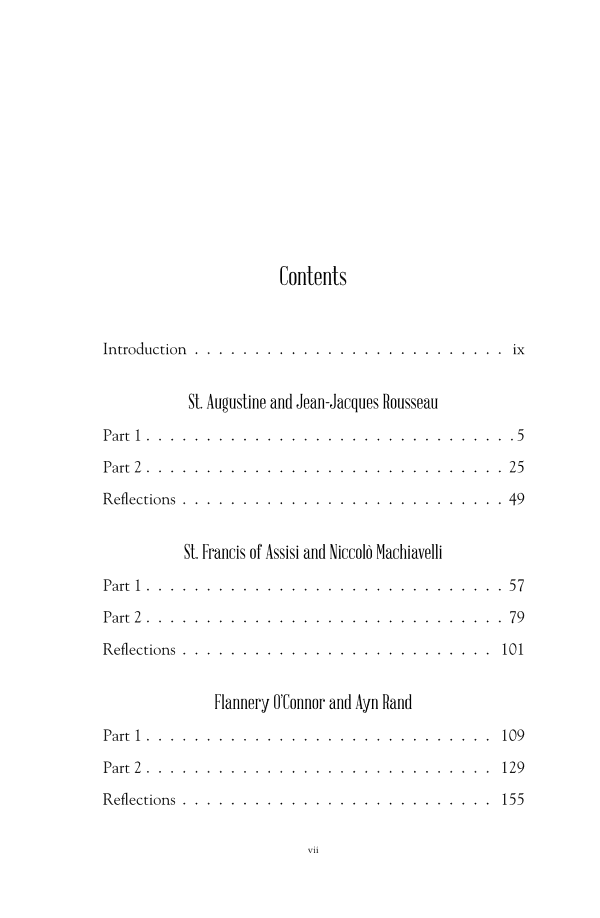
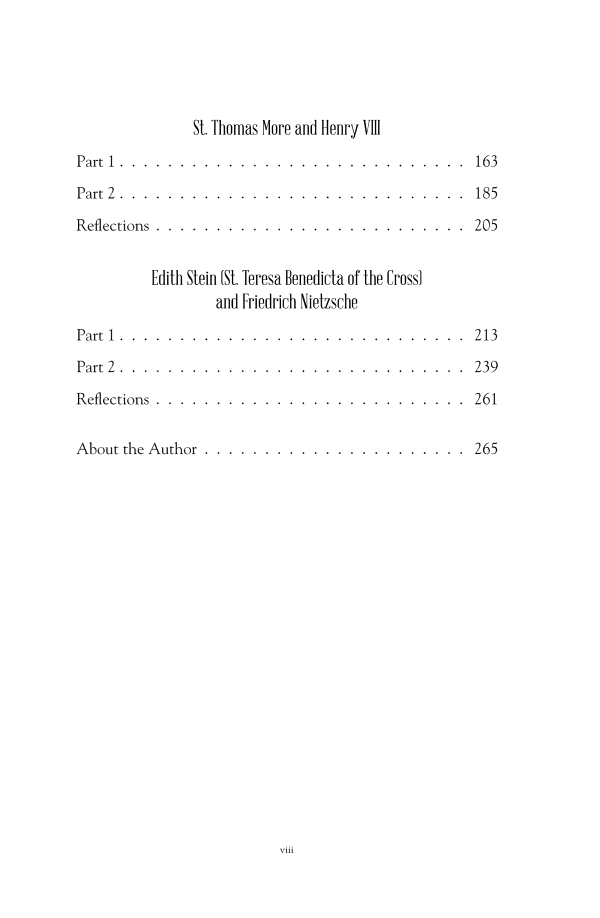
Introduction
Introduction
I dont expect youll believe that people long dead have been visiting my house. You dont really need to believe it to read this book. Just pretend that its a work of enlightening fiction, or a clever way to talk about the great questions, debates, and answers. Those things are the real focus anyway, I suppose. I say that half-convinced, I admit. Is there life after death? Do we have an immortal soul? These are certainly two of the greatest questionsor really one question from two different angles. But if two men who died centuries agosay, Jean-Jacques Rousseau and St. Augustinewere arguing about it in your living room and drinking your coffee, then the question itself is, in a strange but obvious way, answered. The dead speak, and even stranger, they both take cream in their coffee. Thats the way it is with a lot of the great questions we wrestle with, isnt it? A single, significant experience would settle the issue, and there would be no need for further debate. Does a human being have an immortal soul? is no longer a question if youre visited by the dead, in the same way that Will my lonely cousin ever get married? is resolved by his showing up for lunch with his new bride. If all our great questions were settled with experiential evidence, we wouldnt have our great debates, would we? Imagine that. No sooner does someone ask, Is there a God? and then, poof, the answer Himself shows up. Here I am! End of debate. But thats not how things work, andso Im not misleading the readerit wasnt that way with what I experienced, and continue to experience. Im not visited by ghosts. Ghosts dont drink coffee. They dont try to shoot each other. They dont ask for more sandwiches. And, one thinks, since ghosts are traditionally understood to be disembodied spiritsthat is, immaterial soulsthey wouldnt argue about whether human beings had immaterial souls. So, this isnt a ghost storyor stories. I need to be clear about that. These men and women dont know theyre dead. They show up in pairs, acting and arguing just as they did when they were alive, except that theyre in my living room, or office, I guess you should call it, since thats where all my books are and where I do all my best thinking and writing. All this happens, that is, when I am reading their books, or sometimes just after. Forgive me, Im starting in the middle of things. I should make clear that I am a college professor, and thats why I read books that contain the greatest debates about the most important questions. Or perhaps the better way to say it is that I love to read the greatest books written by the greatest thinkers, and that is why I became a college professor. I would do it even if no one paid me, though much less than Id like. This isnt some kind of hobby. How we answer the great questions determines how we live and what we consider good or evil, just or unjust. History is made, for good or ill, by the answers we give to lifes greatest questions: What is a human being? Do we have an immortal soul, or are we merely a body? Does God exist? What is justice? Is the universe the result of a divine creators wise ordering, or is it all produced by mere chance? It was through sorting out these great debates that I became a Catholic college professor. Reason led to faith.
We tend to think that we are each giving our own answers to these great questions. If we study history, however, we find out that almost all of us are the disciples of this or that thinker, whose arguments were immensely influential, and so were passed down to us, sometimes directly through education, sometimes indirectly through culture. But as Ive found through years of study, we generally have little idea of the real depth of the possible answers to the great questions. To discover that depth, we need to return to those few thinkers who have plumbed itwho have really thought about it, long and hard. The obvious problem is that they are all dead. Actually, there are two problems: They are all dead, and the greatest minds do not agree on the answers to the greatest questions. So, since we cannot raise the dead, so to speak, we are left with one option, and that is to read the greatest books and to try to sort out the most profound answers to the most profound questions written by the most profound thinkers. And so I read their books; I read about their lives; I imagine what it would be like if I could bring them before me and hear what they had to saynot just what each has to say for himself, but what each would say if suddenly confronted by an equally profound opposite. What would the great St. Francis say to the great teacher of evil Machiavelli, if they could meet? In life, this wasnt possible. St. Francis was long dead by the time Machiavelli arrived on the scene in Italy. And the great atheist Machiavelli so despised Franciscansbecause he despised Christianitythat Im not sure he would have deigned to talk to the saint if they had been contemporaries. I was, in fact, reading about them both and thinking, How would it have changed Machiavelli if he could have experienced a meeting with St. Francis, a man who was a walking icon of Christ crucified? (If you are not aware of this wonderful fact, St. Francis had the stigmatathe wounds of Christso that his hands and feet were continually bleeding.) So, I was pondering all this, and then it happened. They both actually showed upSt. Francis first, then Machiavelli banging on my door a bit after. Ill tell you what happened later on, but the point here is that neither was a ghost, but a visitor stepping out of his life and into minenot into my feverish mind or into my dreams or into my imagination, but into my home. I have proof Machiavelli spit his cola all over my bookshelf and soiled my paperback copy of Platos Republic. Stinker. I use this pair as an example; they werent the first. That point is, thats the way it is with each paireach Saint and Scoundrel, as I call them, squaring off about how to answer the greatest questions. But I repeat: You dont have to believe it happens that way. Feel free to think its just a clever literary device or something like that. Its all the same to me, as long as you take what they all had to say with the utmost seriousness. You may have some questions about this very odd situation, and so Ill answer some of the most obvious ones now, before we begin. First, my guests do experience a kind of shock at suddenly being in a house with electric lights and so on. Modern technology amazes them, so Im not including that aspect of every encounter, because its pretty repetitious. They all turn the lights on and off, like little children discovering a new toy. But then they get down to greater things. I avoid distracting them with other devices, unless it proves helpful (such as a telescope for Henry VIII and St. Thomas More). Second, theyre all able to speak with me and with each other, and yes, its in English. I dont know how this occurs. And for some even more mysterious reason, they dont express any surprise at it, as if the barrier to communication presented by languages were a thin veneer that could be easily cast away.


